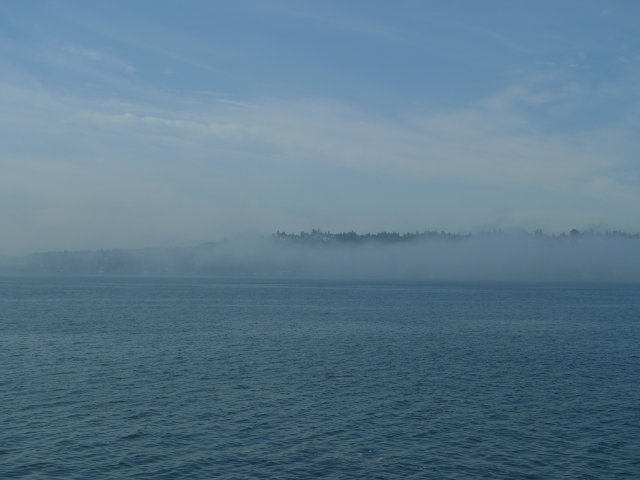Published at 23:32 on 2 August 2013
I don’t normally link to real-estate listings, but what was done to this property was so awful that I simply must. Some flippers took what must have been a classic 1960s A-frame and basically ruined it, aesthetic-wise.
It’s pretty much a textbook case of everything evil about flippers. They tend to be investors bereft of any sort of artistic, historical, or aesthetic sense save for pandering to the most banal of whatever design fads are presently prevailing. They renovate properties which indeed are often worn and neglected, but without any consideration for the design elements that make them unique and give them character.
The result, as with this property, is all too often something which can never again easily possess the many of the design characteristics which once gave it defining character. Take that A-frame for example; it once had natural wood finishes as its defining element. Now every such surface has been painted over in a faddish color scheme. It would take a lot of money and effort to remove all that off-white awfulness. So it will probably never be done. What was a major defining design element of an A-frame is now gone, forever.
It’s so sad. That house could have been just as easily been cleaned up and restored into a really great “back to the sixties” vintage home (with a few tasteful modern updates thrown in here and there, of course; nobody’s saying a cheap, unreliable 1960s range in the kitchen must stay). That would have created something truly unique and full of character that simply cannot be purchased in a new home.
Instead, we have a house trying to be something other than what it really is, and failing miserably.
Despite that, it will probably sell just fine. Part of the problem with remodeling is that such tasteless hatchet jobs tend to look just fine to all-too-many eyes… when they’re first done. The widespread regret only starts kicking in a decade or two later. Witness all the owners of classic Victorian homes who eagerly paid good money to have them “modernized” by covering their clapboards with (link) T1-11 siding and removing so-called “excessive” ornamentation back in the 1970s.
Here’s one example of what can be done with a vintage A-frame. (No, I don’t think it’s perfect, but then again I’d expect to have some design quibbles with someone else’s vision. No two people can ever be expected to agree 100% on matters of aesthetics.) The contrast between this LA artist’s vision and the local one of a 1-dimensional person whose vision is limited to turning a quick buck is, shall we say, fairly striking.
Update: Here’s what it looked like before the flippers vandalized it. It wasn’t completely intact by the time they got it (not a surprise, it is 50 years old), but it did still have all the basic fundamentals a home of that style should have. It would have made a great starting point for a tasteful renovation, and it sold for 164 grand less than the current asking price.
 Well, I’m 99.5% sure that’s what this is. The only remaining thing would have been to pick it, slice it, and see if it stained to a bluish color (if so, not edible). But I didn’t have any of my books or notes with me, and hadn’t reviewed them beforehand, not expecting to find any boletes on that hike.
Well, I’m 99.5% sure that’s what this is. The only remaining thing would have been to pick it, slice it, and see if it stained to a bluish color (if so, not edible). But I didn’t have any of my books or notes with me, and hadn’t reviewed them beforehand, not expecting to find any boletes on that hike.

